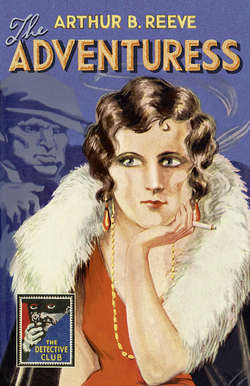Читать книгу The Adventuress - Arthur B. Reeve, Brander Matthews - Страница 13
CHAPTER VI THE POISON GAS
ОглавлениеA GLANCE at my watch was sufficient to assure me that I should have no time for further inquiries if I wanted to meet Kennedy before going down to the office of Hastings. I wanted to do that, too, for I felt sure that Craig would talk more freely to me than to the rest, and my interest in the affair had by this time become insatiable.
Accordingly, I retraced my steps to the laboratory. Kennedy was still at work, partly over some reactions in test-tubes, but mostly using the strange three-tubed instrument I had noted. As I outlined to him rapidly what I had discovered and the plain inferences to be drawn from it, he listened attentively, still working.
‘Very good,’ was Kennedy’s sole comment as I concluded my story. ‘That’s very interesting—possibly very important. It begins to look as though Maddox had been in someone’s way and that that someone was taking no chances in order to “get” him.’
‘What have you discovered so far?’ I hesitated, not sure yet whether he was willing to talk, for Kennedy never said anything, even to me, until he was perfectly sure of his ground.
‘Marshall Maddox was not drowned, at least,’ he vouchsafed.
‘Not drowned?’ I repeated, more to lead him on than because I was surprised.
‘No. Whatever was the cause of his death, he was not killed by drowning. The lungs and stomach show that. In fact, I knew at Westport that he might have died a natural death or might even have been a suicide. But he certainly did not die of drowning. Only more careful tests than either the coroner or I could make at Westport were necessary.’
‘How did it happen, then?’ I continued, emboldened by his apparent readiness to talk.
Kennedy took a bottle with a ground-glass stopper and held it up so that I could see its greenish-yellow contents. Then he pulled out the stopper, covered with vaseline, for an instant and shoved it back again.
The instant was enough. A most unpleasant odour filled the laboratory. I felt a sense of suffocation in the chest, an irritation in the nose and throat, as though by the corrosive action of some gas on the air passages.
‘If we could only have seen him before he died,’ continued Kennedy, ‘I suspect we should have found his face as blue as it was when we did see him, his lips violet, his pulse growing weaker until it was imperceptible, and perhaps he would have been raising blood. It would have been like an acute bronchitis, only worse. Look.’
From a little pin prick which he made on his own thumb Craig squeezed out a drop of blood into a beaker containing some distilled water.
‘This is a spectroscope,’ he explained, touching the instrument I had noticed. ‘I think you are acquainted with it in a general way. Blood in water, diluted, shows the well-known dark bands between what we call “D” and “E.” These are the dark bands of oxyhaemoglobin absorption. Now, I add to this, drop by drop, the water from that bottle which I uncorked. See—the bands gradually fade in intensity and finally disappear, leaving a complete and brilliant spectrum devoid of any bands whatever. In other words, here is a substance that actually affects the red colouring matter in the blood, bleaches it out, and does more—destroys it.’
I listened in amazement at the fiendish nature of his discovery.
‘Marshall Maddox was overcome by the poison gas contained in a thin-shelled bomb that was thrown through his state-room window. The corrosion of the metal in the room gave me a clue to that. Then—’
‘But what is this poison gas?’ I demanded, horrified.
Kennedy looked at me fixedly a moment. ‘Chlorine,’ he replied simply; adding, ‘the spectroscope shows that there is a total absence of pigment in the blood. You can readily see that it is no wonder, if it has this action, that death is sometimes so rapid as to be almost instantaneous. Why, man alive, this thing destroys without the possibility of reconstitution! It is devilish in the quantity he inhaled it.’
I could only gasp with surprise at the discovery.
‘But how was it done?’ I repeated. ‘You think a bomb was thrown through the open port?’
‘Without a doubt. Perhaps, as you guessed, from a boat outside, the roof of a cruiser, anything, as far as that end of it goes. Whoever did it might also have entered the room in the same way.’
‘Entered the room?’ I asked.
‘Yes, wearing a mask composed of several layers of gauze impregnated with glycerinated solution of sodium hypophosphate. That is one of many substances used. All that was necessary was to wet the mask with water and adjust it. It would have served a double purpose—to protect the wearer’s life as well as his identity.’
